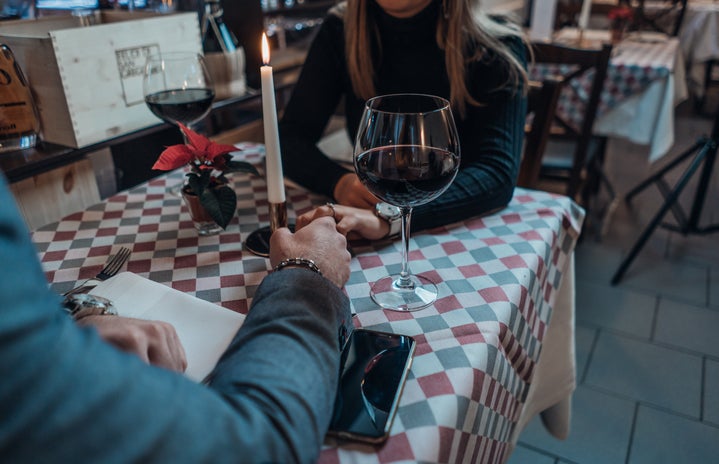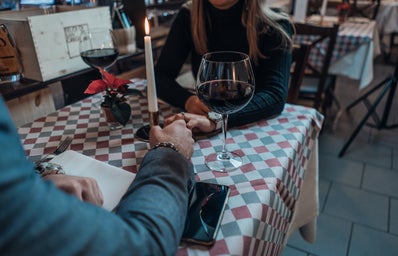In the dynamic landscape of the University of Puerto Rico Rio Piedras Campus, the relationships of Gen Z individuals unfold against the backdrop of the digital age. This article delves into the findings of a comprehensive study capturing the diverse perspectives of participants, offering a nuanced exploration of love, dating, and friendships in the era of technology.
Demographics: Who Shapes the Narrative?
During the course of this investigation, 23 students were asked about their experiences dealing with love and friendship during this digital age. The participants, ranging from 16 to over 21 years old, provide a broad spectrum of experiences. Notably, the majority fall into the 21-and-older category, indicating a varied range of perspectives shaped by both youth and emerging adulthood. The gender distribution within the sample is intriguing. With more women (16) than men (three) and a notable representation of non-binary individuals (four), the study offers an inclusive portrayal of the complex interplay between gender dynamics and digital relationships. From the people that participated, 17 were single, five were in relationships, and one was engaged. The prevalence of single participants dominates the relationship landscape, hinting at a diverse array of experiences in the realm of dating and partnerships. Noteworthy is the engagement of one participant, showcasing the spectrum of relationship statuses within the campus community.
Social Media Usage: A Double-Edged Sword
In my next steps, I asked the participants to answer some more specific questions. Such as frequency of social media usage for participants, whether or not they’ve been a part of online relationships, and the effects of social media in relationships. High-frequency social media engagement is the norm for a majority, reflecting the omnipresence of digital platforms in the lives of these individuals. However, a noteworthy fraction maintains a neutral stance, revealing varied attitudes towards online interaction. The division between those who have and haven’t participated in online relationships presents a fascinating insight into the prevalence and acceptance of digital connections in the pursuit of romantic involvement.
A very interesting point I found was the fact that 12 participants said they had been in online relationships before and 11 had not. These findings were surprising to me, seeing as many people are afraid of actually going through committed relationships online out of fear and trust issues. Yet there was only a one digit difference. While a majority perceives technology as an enhancer of relationships, a significant portion remains neutral, suggesting a nuanced and diverse understanding of the role of technology in shaping connections. A slight majority of 11 people believe technology has made relationships easier, five feel it has made relationships harder, and seven remain neutral on the impact.
Preferences and Experiences: The Heart of the Matter
Now let’s dig into how online dating has had an effect on people and how these effects have changed their opinions towards dates in person. When conducting the study, 22 participants expressed their preference for in person dates, emphasizing the enduring appeal of face-to-face interactions. Most of the people asked said that it felt more raw and intimate to have in person dates. They said they didn’t have the same nervousness and excitement as they would meeting people online. However, outliers exist, highlighting the evolving nature of dating preferences in a digital era.
Mixed responses to online dating experiences mirror the complex and multifaceted nature of digital connections, with positive, negative, and neutral outcomes shaping individual perspectives. Out of the 23 participants, four people had positive experiences with online dating, nine had negative, and ten had neutral. Many of the participants agreed that there can’t really be a set answer due to the fact that maybe they didn’t really give it their all or that maybe it wasn’t the fact of the dating being online, but probably just the people and their connections overall.
The challenges of expressing emotions through digital means form a notable theme, underlining the potential limitations of technology in capturing the depth of human connection. The majority
(15) find it harder to express feelings and emotions through digital means. Five individuals find it easier, and three are neutral. A common idea amongst those questioned was that they felt like words were never enough to express what they really felt and the fact that they couldn’t physically show it really limited them and didn’t allow them to show the depth of their feelings.
The prevalence of forming friendships through online communities suggests a positive impact of digital platforms on expanding social circles. However, a significant minority has not engaged in this form of connection, emphasizing the diversity of experiences. 14 people were able to form online friendships that even became in person ones and seven participants explained that they never felt like it was right for them, some said it was because of time, connections, or simply not giving it their all.
Privacy and Security Concerns: Navigating the Digital Minefield
Within the digital sphere of the University of Puerto Rico Rio Piedras Campus, nine participants express concerns about privacy and security online. Meanwhile, 12 respondents remain neutral, indicating a spectrum of attitudes toward digital privacy. This nuanced landscape underscores the complexities of navigating online interactions, emphasizing the importance of balancing the benefits and potential risks inherent in the digital age.The study found that an equal number of people, 12 of them, had uncomfortable experiences or faced privacy issues online, while 11 didn’t encounter such problems. This shows that online spaces can be both helpful and sometimes risky when it comes to personal boundaries. It highlights the mixed nature of the digital world, where people need to be careful about their privacy while also benefiting from online interactions.
Beliefs about Finding True Love Online: A Digital Odyssey
Falling in love in real life is already hard as is, so will the digital market make it easier for us, or keep it the same? The majority’s belief in the possibility of finding true love online reflects a shift in societal perceptions, emphasizing the transformative potential of digital platforms in the realm of romantic relationships. One answer that I found truly interesting was a participant that actually questioned what the term “true love” even meant. Can you truly form those deep connections that people categorize as soulmates or twin flames through a screen? And the real question, can it even be done in person? Participants shared personal narratives that shed light on the intricate intersections of technology and relationships. Digital connections are celebrated for fostering meaningful friendships, transcending geographical barriers and serving as a vital tool in maintaining long-distance relationships. However, concerns about trust and the ability to establish deeper connections beyond the digital realm persist. The impact of technology on relationships is multifaceted, ranging from increased connectivity and communication to persistent concerns about trust and the nature of online connections.
In the realm of online dating, participants face a diverse array of challenges, from fears of encountering fake personas to difficulties in gauging genuine interest. Privacy and uncertainty loom large, but there is a spectrum of perspectives, with some emphasizing the importance of face-to-face interactions for building meaningful connections.
The impact of social media on romantic relationships and dating experiences is similarly varied. Some find it manageable, using it as a tool for communication and discovering new places or ideas for dates. However, concerns about competition, anxiety, and the creation of unrealistic expectations remain. Trust and boundaries are crucial, with open communication advocated to navigate the complexities of online interactions.
Maintaining friendships in the digital age requires effort and a delicate balance between digital and in-person interactions. Various platforms facilitate connections, with face-to-face calls, group chats, and shared activities serving as crucial components of nurturing friendships. Challenges exist, but the consensus is that friendships can thrive through consistent communication and the use of various online platforms.
When conflicts arise in online friendships, participants employ diverse strategies, emphasizing the importance of communication and understanding. Direct conversations, a combination of online and offline communication, and the recognition of diverse experiences and opinions are common approaches to resolving conflicts.
The participants express diverse perspectives on love and romantic relationships in the digital era. Skepticism about the authenticity of online interactions is prevalent, with concerns about the presentation of idealized versions of relationships on social media. The digital era is seen as both a tool for connection and a source of potential challenges, shaping perceptions and experiences of love in diverse ways.
Additional insights from participants highlight the benefits of online interaction for shy individuals, cautionary notes about connecting with people on social media, and the importance of in-person interactions for building intimacy. Advice centers around taking risks, patience, empathy, responsible sharing on social media, and looking beyond online portrayals for genuine connections.
In conclusion, the narratives woven by Gen Z at the University of Puerto Rico Rio Piedras Campus reflect the intricate dance between the digital and the personal in the realm of relationships. The study captures a mosaic of experiences, emphasizing the need for nuanced understanding and open dialogue in navigating the complexities of love, dating, and friendships in the digital age.
*For those interested in reading through some of the responses of the investigation, here are the results in Spanish*


